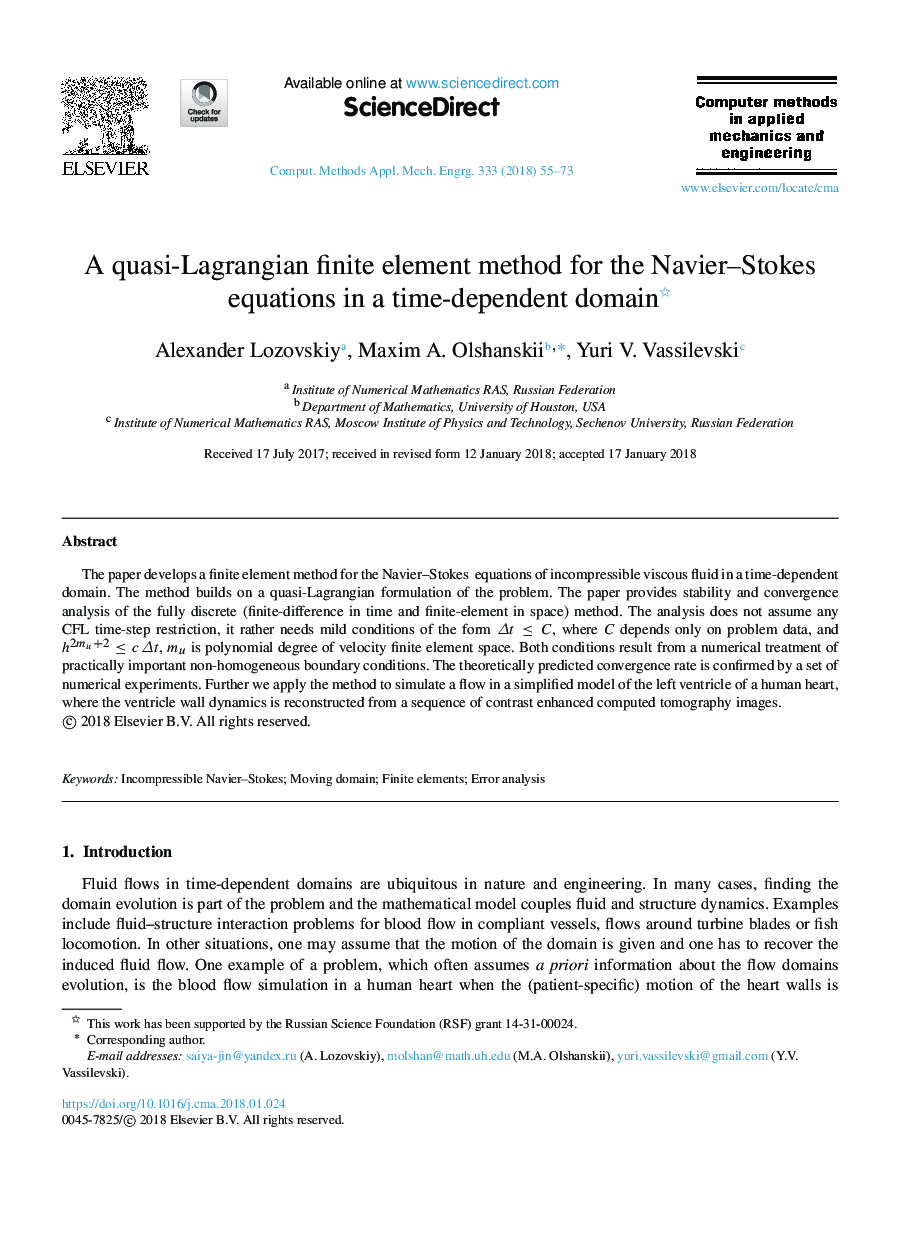| Article ID | Journal | Published Year | Pages | File Type |
|---|---|---|---|---|
| 6915564 | Computer Methods in Applied Mechanics and Engineering | 2018 | 19 Pages |
Abstract
The paper develops a finite element method for the Navier-Stokes equations of incompressible viscous fluid in a time-dependent domain. The method builds on a quasi-Lagrangian formulation of the problem. The paper provides stability and convergence analysis of the fully discrete (finite-difference in time and finite-element in space) method. The analysis does not assume any CFL time-step restriction, it rather needs mild conditions of the form Îtâ¤C, where C depends only on problem data, and h2mu+2â¤cÎt, mu is polynomial degree of velocity finite element space. Both conditions result from a numerical treatment of practically important non-homogeneous boundary conditions. The theoretically predicted convergence rate is confirmed by a set of numerical experiments. Further we apply the method to simulate a flow in a simplified model of the left ventricle of a human heart, where the ventricle wall dynamics is reconstructed from a sequence of contrast enhanced computed tomography images.
Related Topics
Physical Sciences and Engineering
Computer Science
Computer Science Applications
Authors
Alexander Lozovskiy, Maxim A. Olshanskii, Yuri V. Vassilevski,
